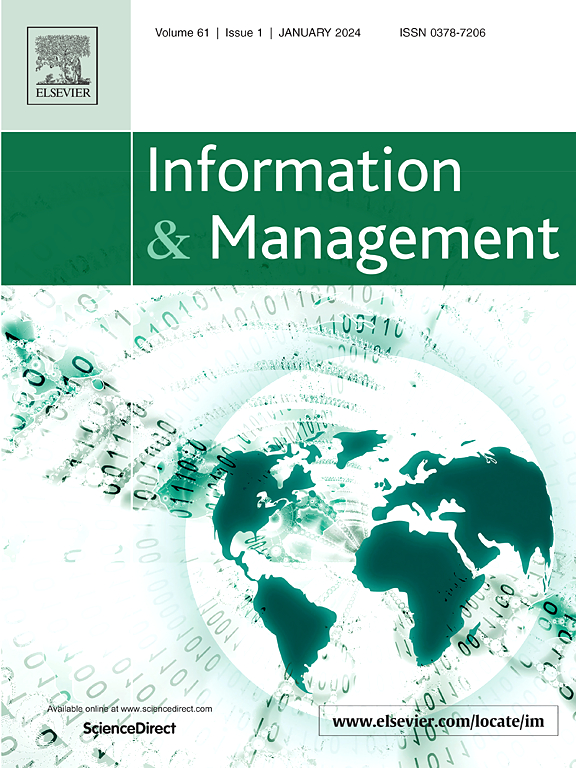Momentum effects in crowdsourcing contest platforms
IF 8.2
2区 管理学
Q1 COMPUTER SCIENCE, INFORMATION SYSTEMS
引用次数: 0
Abstract
Members of a crowdsourcing contest platform usually participate in multiple contests over time. Their performance in these contests can create a performance trajectory, producing positive or negative momentum. Although such momentum is a pervasive phenomenon in practice, it has largely been overlooked in the crowdsourcing contest literature. The broader literature on momentum posits that it can affect individuals’ cognition and change their behavior. We leverage insights from this literature to investigate how momentum influences contestants’ performance and the underlying mechanisms. We show that contestants’ momentum is positively associated with their contest performance by motivating contestants to engage in more learning activities (including learning from others and learning from own experience) between contests and exert more effort during contests. By adopting momentum theory as a novel theoretical lens, our study enriches the crowdsourcing contest literature by showing that momentum is a novel and impactful determinant of individuals’ contestant performance. Besides, whereas classical momentum theory asserts that motivation explains the positive relationship between momentum and performance, we extend the boundary of momentum theory by showing that contestants’ motivation manifests in their learning activities and effort in the context of crowdsourcing contest platforms. Taken together, our study offers important practical implications for the design and governance of crowdsourcing contest platforms.
众包竞赛平台的动量效应
众包竞赛平台的成员通常会在一段时间内参加多个竞赛。他们在这些比赛中的表现可以创造一个表现轨迹,产生积极或消极的势头。尽管这种势头在实践中是一种普遍现象,但在众包竞赛文献中,它在很大程度上被忽视了。关于动量的更广泛的文献假设它可以影响个体的认知并改变他们的行为。我们利用这些文献的见解来研究动量如何影响参赛者的表现和潜在的机制。我们发现,选手的动力与比赛成绩呈正相关,激励选手在比赛期间参与更多的学习活动(包括向他人学习和从自己的经验中学习),并在比赛中付出更多的努力。通过采用动量理论作为一种新颖的理论视角,我们的研究丰富了众包竞赛文献,表明动量是个体参赛者表现的一个新颖且有影响力的决定因素。此外,经典动量理论认为动机解释了动量与成绩之间的正相关关系,而我们扩展了动量理论的边界,表明在众包竞赛平台的背景下,参赛者的动机体现在他们的学习活动和努力中。综上所述,我们的研究为众包竞赛平台的设计和治理提供了重要的实际意义。
本文章由计算机程序翻译,如有差异,请以英文原文为准。
求助全文
约1分钟内获得全文
求助全文
来源期刊

Information & Management
工程技术-计算机:信息系统
CiteScore
17.90
自引率
6.10%
发文量
123
审稿时长
1 months
期刊介绍:
Information & Management is a publication that caters to researchers in the field of information systems as well as managers, professionals, administrators, and senior executives involved in designing, implementing, and managing Information Systems Applications.
 求助内容:
求助内容: 应助结果提醒方式:
应助结果提醒方式:


